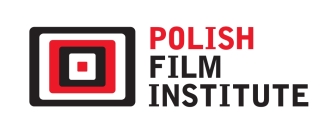On Subjectivisation in Film Again
Tomasz Kłys
tomasz.klys@uni.lodz.plUniversity of Lodz (Poland)
http://orcid.org/0000-0001-7443-9479
Abstract
Robert Birkholc’s book Podwójna perspektywa. O subiektywizacji zapośredniczonej w filmie [The Double Perspective. On Mediated Subjectivisation in Film] (2019) is devoted to the use of a functional equivalent of the literary device of free indirect speech in narrative film. The author projects this topic onto the broader background of subjectivization in the fiction film (i.e. the different techniques of subjective narration in film history and the history of this topic in film studies). Birkholc calls this film equivalent of free indirect speech “mediated subjectivisation”. He describes this category against a reflection on the relationship between the perspective of the narrative instance and the perspective of the film character. The author uses the notions of external and internal focalization, borrowed from the theory of literature. The category of internal focalization and its differentiation into narrativisation, personification and subjectivisation is the final and decisive tool for the meticulous analyses of five films in the second part of the book; according to the author, the formal dominant of these films is the mediated subjectivisation.
Keywords:
film narrative, subjectivization, focalizationReferences
Birkholc, R. (2019). Podwójna perspektywa. O subiektywizacji zapośredniczonej w filmie. Kraków: Universitas.
Google Scholar
Authors
Tomasz Kłystomasz.klys@uni.lodz.pl
University of Lodz Poland
http://orcid.org/0000-0001-7443-9479
Associate Professor of film studies at the University of Lodz, where he works at the Department of Film and Audiovisual Media. His fields of research are film narration, theory of diegesis and German cinema of the Weimar Republic and the Third Reich. Author of the books: Film fikcji i jego dominanty [The Fiction Film and Its Dominants] (1999), Dekada doktora Mabuse [Decade of Dr. Mabuse] (2006), Od Mabusego do Goebbelsa [From Mabuse to Goebbels] (2013), and co-author (with E. Nurczyńska-Fidelska, P. Sitarski and K. Klejsa) of the handbook Kino bez tajemnic [Cinema with No Secrets] (2009).
Statistics
Abstract views: 594PDF downloads: 408
License
Copyright (c) 2020 Tomasz Kłys

This work is licensed under a Creative Commons Attribution-NonCommercial-NoDerivatives 4.0 International License.
The author grants the publisher a royalty-free non-exclusive licence (CC BY 4.0) to use the article in Kwartalnik Filmowy, retains full copyright, and agrees to identify the work as first having been published in Kwartalnik Filmowy should it be published or used again (download licence agreement). The journal is published under the CC BY 4.0 licence. By submitting an article, the author agrees to make it available under this licence.
In issues from 105-106 (2019) to 119 (2022) all articles were published under the CC BY-NC-ND 4.0 licence. During this period the authors granted a royalty-free non-exclusive licence (CC BY-ND 4.0) to use their article in „Kwartalnik Filmowy”, retained full copyright, and agreed to identify the work as first having been published in our journal should it be published or used again.
Most read articles by the same author(s)
- Tomasz Kłys, Bresson 'avant la lettre', or an 'A' Grade Stylistic Exercise: „Public Affairs” , Kwartalnik Filmowy: No. 105-106 (2019): Cinema and Political Transformation
- Tomasz Kłys, In Memory of Ewa Nagurska , Kwartalnik Filmowy: No. 126 (2024): Fantasy and Phantasm
- Tomasz Kłys, Film Born Out of the Spirit of the Theatre, or the New Wave and Pessimism: Films by Jacques Rivette , Kwartalnik Filmowy: No. 87-88 (2014): Film and Theatre
- Tomasz Kłys, Expressionism One More Time, or a Fresh Look at the History of German Cinema , Kwartalnik Filmowy: No. 67-68 (2009): Film History
- Tomasz Kłys, The Balance of Benefits and Detriments, or About the Polish Edition of “Film Art: An Introduction” , Kwartalnik Filmowy: No. 71-72 (2010): Narration in Film
Similar Articles
- Jacek Ostaszewski, Subjective Techniques in Feature Films , Kwartalnik Filmowy: No. 97-98 (2017): Wandering Motifs
You may also start an advanced similarity search for this article.











